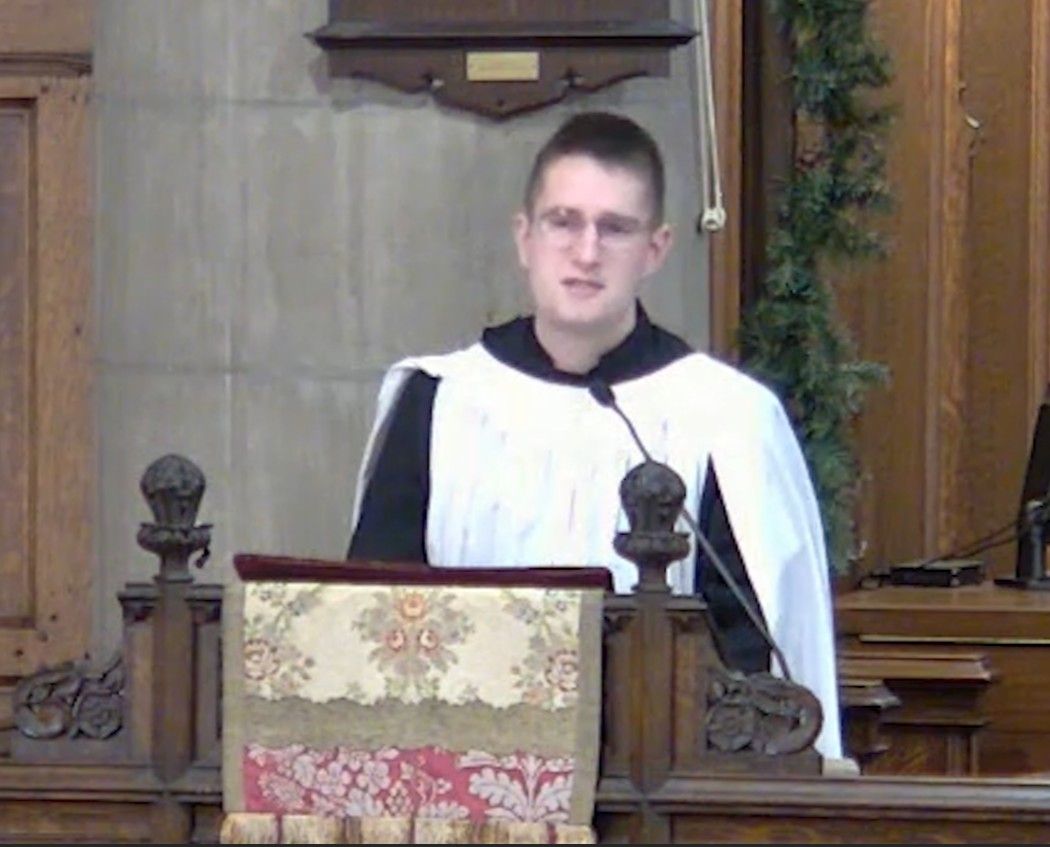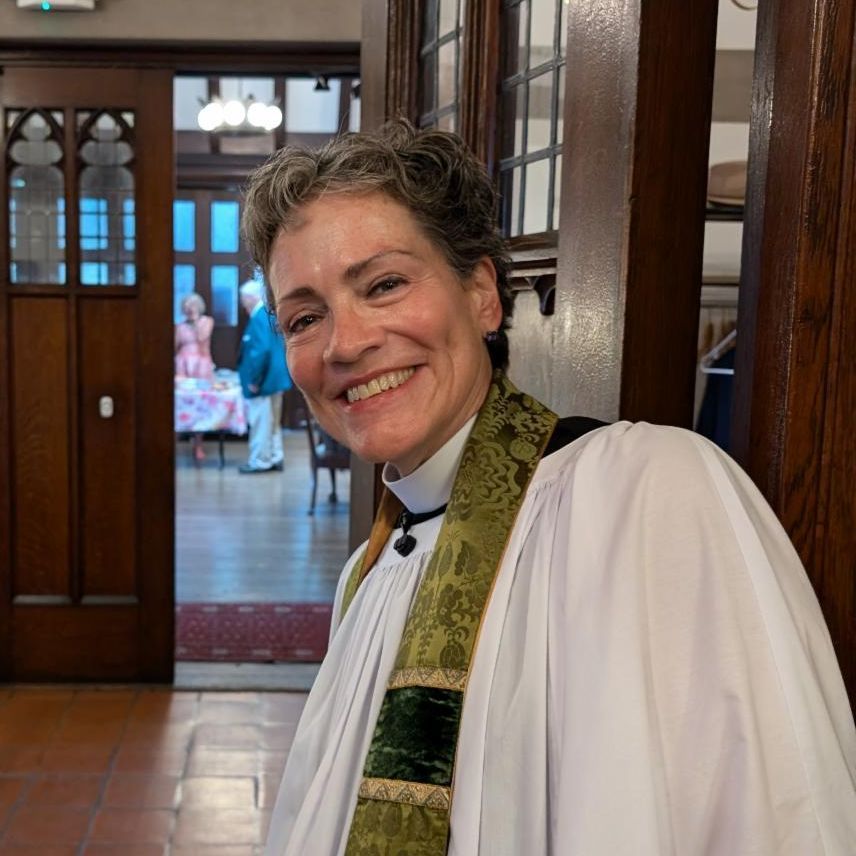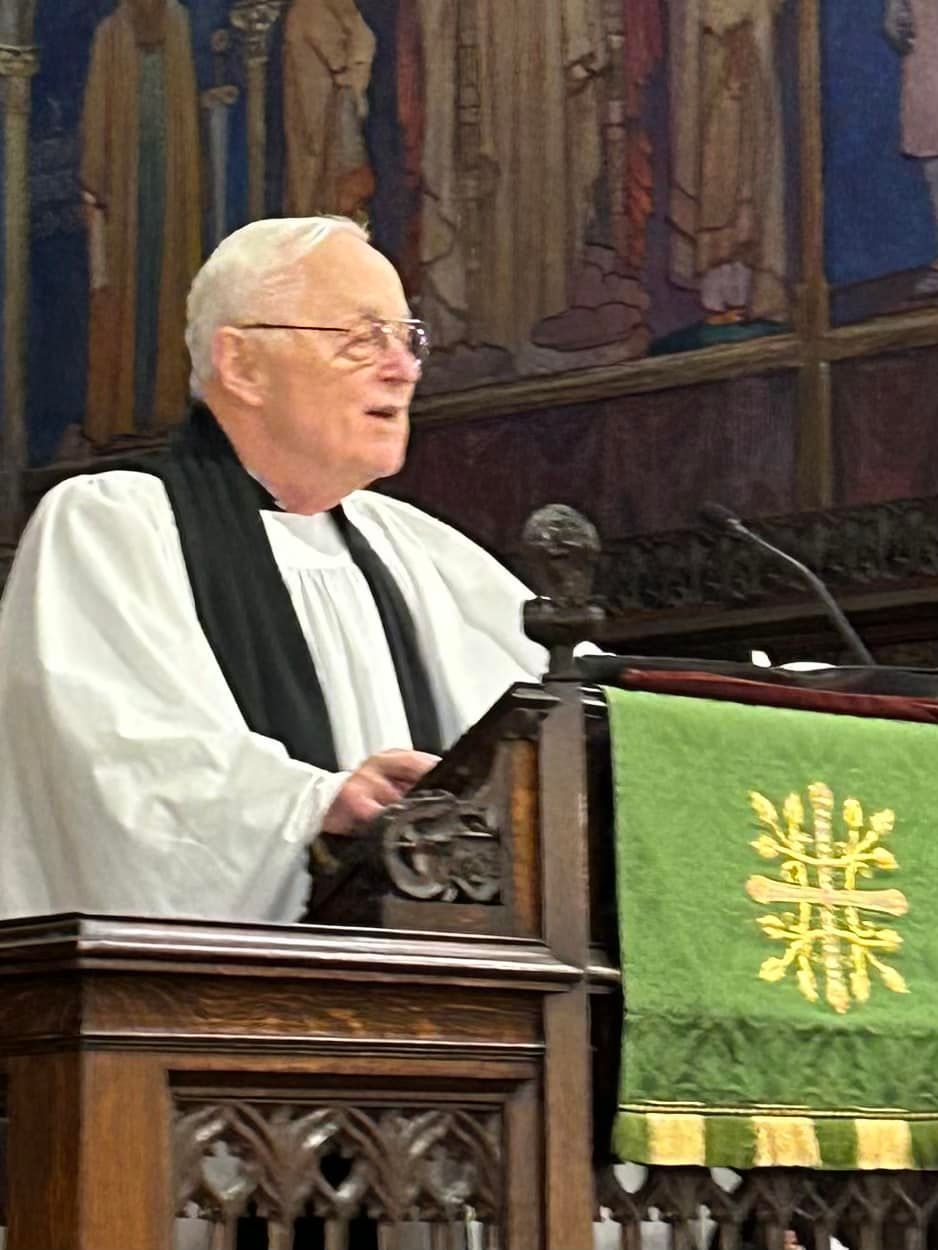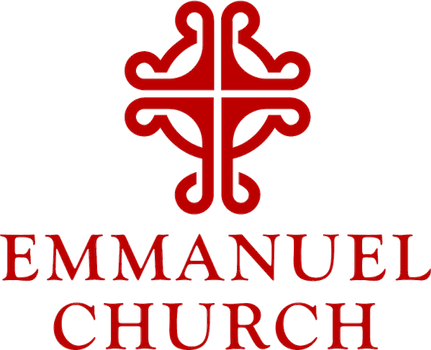Christ the King
Sermon for the Feast of Christ the King
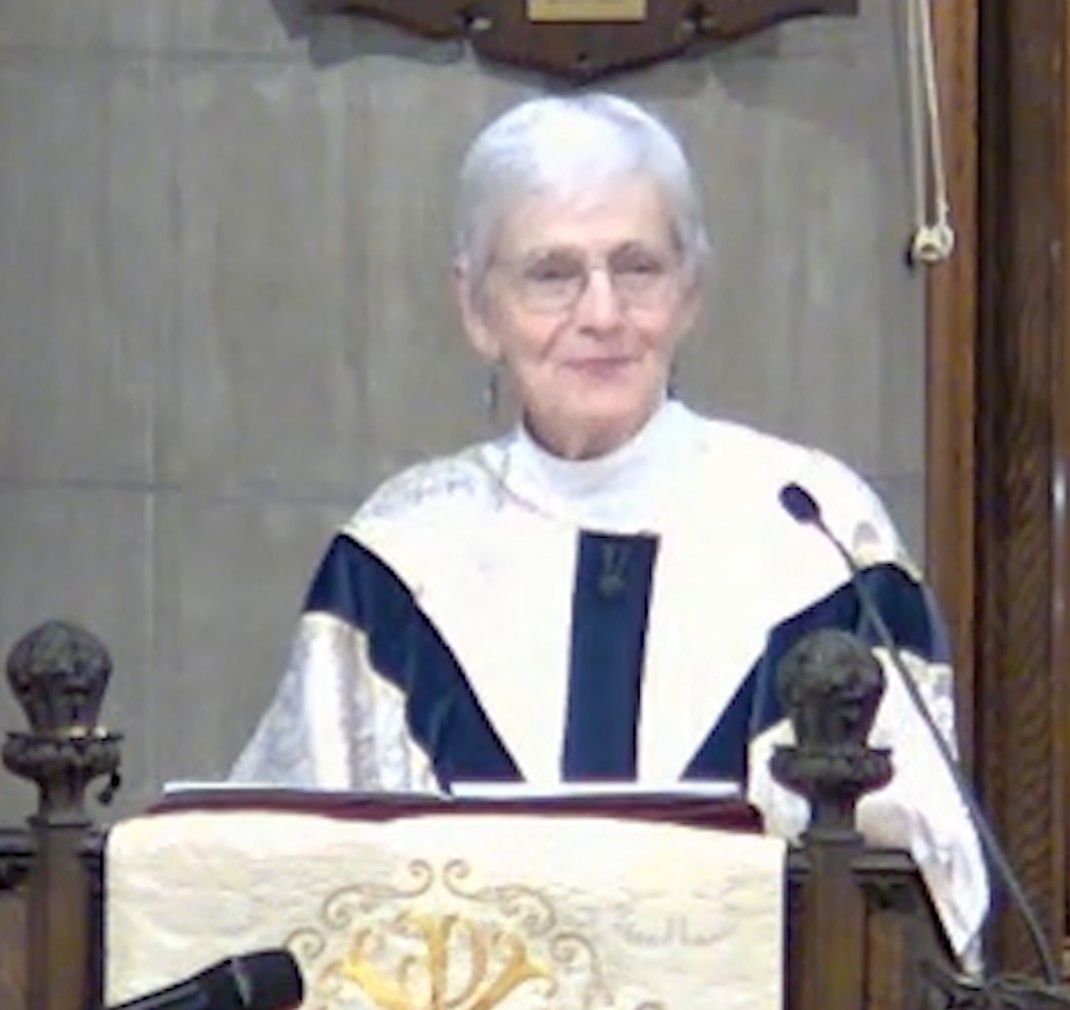
Luke 23:33-43
When they came to the place that is called The Skull, they crucified Jesus there with the criminals, one on his right and one on his left. Then Jesus said, "Father, forgive them, for they do not know what they are doing." And they cast lots to divide his clothing. And the people stood by watching, but the leaders scoffed at him, saying, "He saved others; let him save himself if he is the Messiah of God, his chosen one!" The soldiers also mocked him, coming up and offering him sour wine and saying, "If you are the King of the Jews, save yourself! There was also an inscription over him, "This is the King of the Jews." One of the criminals who were hanged there kept deriding him and saying, "Are you not the Messiah? Save yourself and us!" But the other rebuked him, saying, "Do you not fear God, since you are under the same sentence of condemnation? And we indeed have been condemned justly, for we are getting what we deserve for our deeds, but this man has done nothing wrong. Then he said, "Jesus, remember me when you come in your kingdom." He replied, "Truly I tell you, today you will be with me in paradise."
The last Sunday after Pentecost is the turning point in the Christian calendar. Next Sunday, the first in Advent, we begin a new year in our liturgy and readings, and our seasonal vestments and altar hangings change from Pentecost green to Advent blue.
Diana Butler Bass’ new book A Beautiful Year honors the Christian calendar. A PhD historian of American religion, celebrated author, writer, speaker, and now Substack commentator, Bass was reared as a Methodist. After years in evangelical churches, she returned to mainline Christianity as an Episcopalian.
She begins this thoughtful book by reflecting on time itself. “Calendars tell stories”, she wrote: “Who we honor, what we treasure, what we aspire to….teaching… through cycles of repetition and ritual.”
Bass notes how the legacy of the Roman Empire is quietly imbedded in the Western calendar, where every month “is named after a Roman god, pagan festival, emperor, or Roman numeral.”
In contrast, “The Christian year is a cycle of stories and rituals based on the life and teachings of Jesus”. For the last decade Bass has structured her life following the Christian year. A Beautiful Year offers readers the chance to do the same. She grouped the chapters in order by the seasons of the Christian year: Advent, Christmas, Epiphany, Lent, Holy Week, Easter, and the long season after Pentecost that ends today. Each chapter contains reflections on the season and on some of the lectionary readings. They are eloquent, deep, expansive meditations on our faith.
* * *
Today is November 23, nearly six weeks away from January 1, and the end of the Christian year. Our gospel is the climactic episode in Jesus’ earthly life, the Crucifixion itself.
“When they came to the place that is called The Skull, they crucified Jesus there with the criminals, one on his right and one on his left.”
Jesus has been through a night of unending terror, cruelty, and indignity. Betrayed by Judas, he was arrested by the temple police who mocked and beat him, while Peter stood nearby denying him three times. Harassed and maligned by the chief priests, then Pilate, then Herod, Jesus was brought back for final judgement to Pilate. Pilate was prepared to release Jesus. But he yielded to the crowds’ cry “Crucify him! Crucify him”. Wounded, bleeding, exhausted, and alone Jesus was forced to carry the cross through the city of Jerusalem to the outskirts, to Golgotha.
Crucifixions were the most brutal, effective tools of oppression in the Roman Empire’s kit. They were public displays of humiliation, torture, and agonizing death by suffocation. Remember that the cross had such horrible associations it only became a Christian symbol in the 4th century. When Constantine adopted the faith he honored the cross, which he had seen in a vision before victory in battle.
After everything that Jesus had already endured, his near-naked body was nailed to the rough, hard wood of the cross. All but his closest friends have abandoned him in fear. Even those few stand at a distance from the horror. Now hanging in public on the well-traveled road to the city, he is mocked and scorned by soldiers, antagonists, and passersby.
A lone voice rises beside Jesus rises in his defense: “this man has done nothing wrong."
Indeed. Jesus has done nothing wrong. Yet he says nothing to defend himself. Aloof from the rabble, the rejection, the vulnerability, and even the pain, in the last hour of his life, he speaks only three times.
He prays for his persecutors:
"Father, forgive them, for they do not know what they are doing."
He replies to the plea of the man hanging beside him:
"Truly I tell you, today you will be with me in paradise."
And, in the verses beyond our text, he finally commends his spirit to God.
Christians are often taught that the cross itself and the image of Jesus on the cross represent his actions as savior and mediator: (vertically) receiving the blessing of God from above and (horizontally) sharing it to the world through his outstretched arms. Here, Jesus completes that circle: he gathers all those who have brought him unjustly to his death and lifts them up to God for forgiveness.
Commentator Kendra Mohn, Pastor of Ft. Worth Trinity Lutheran wrote:
“…in this moment of humiliation…Jesus embodies the ultimate act of love and forgiveness. Using his power to grant mercy to others, even those actively hurting him, underscores how deeply grace is indicative of the reign of Christ.” She wrote:
“Relationship, is at the core of this kingdom.”
With all that he is suffering, Jesus is still in relationship with God and with the man crucified beside him, with the worst of his antagonists--bringing grace, love, forgiveness, compassion, and mercy to them all. The challenge to us as followers of Jesus, is to bring grace, love, forgiveness, compassion, and mercy to all our relationships, as well.
Relationship is at the core of Christ’s kingdom. Personal relationships in the United States have taken a beating in the last decade—and with them the sense of who we are as a people. Political divisions were already wounding that sense ten years ago. Then, with Covid’s deadly threat, we isolated ourselves from one another. For three years we stopped meeting in person: staying away from church, service organizations, seasonal celebrations, performances, even family gatherings. It was a huge rupture in our ways of being. In that climate of fear, social isolation further fueled our feelings of political polarization. They grew to the extent that on both sides large parts of the population felt like we were strangers in our own country.
Zoom was and still is helpful in keep some ties. But we are social creatures. Nothing can replace coming together, sharing time, space, and work in person. The simple interactions and conversations that happen when we are together open our hearts and minds to one another, lessening fears, fostering patience, breaking down differences, nurturing compassion.
I believe we are still in a long process of recreating the sense of our common humanity. I see hopeful signs right here in the growth and strength of our community at Emmanuel. It’s also very clear in the Martin Luther King Center Pantry where Bobby Gaines and I both volunteer along with others here. On the first day that SNAP benefits were suspended, the Pantry shelves were stocked to overflowing. Four weeks later they still are. And it’s not just donations of food. New volunteers have stepped in to help manage the donations and distribute them to the monthly shoppers who are anxious when they arrive and elated when they depart.
Emmanuel’s bountiful donations joined those from this whole diverse county. The community rose up with grace, love, mercy, and compassion to fill the SNAP gap for our neighbors. Thanks be to God!
As I saw how we came together in love and generous care for the community, it felt to me like we were coming home to ourselves, to the people we have always been at our best.
It’s a precious blessing to celebrate—God bringing light into the darkness and good out of tragedy.
My prayer is that we recognize the renewal of this community spirit in our myriad relationships and work conscientiously together to build upon it.
By God’s grace, and with God’s help, let it be so.

